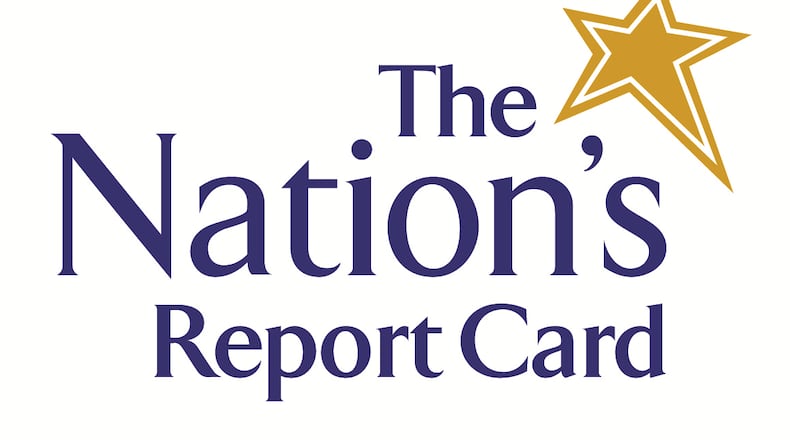On Wednesday, the 2019 math and reading scores of America’s 4th and 8th graders on the National Assessment of Educational Progress will be released.
Called the Nation’s Report Card, NAEP features national and state data, as well as scores for 27 urban districts, including Atlanta.
Created by the U.S. Congress, NAEP has provided updates and insights into how students are doing academically for 50 years. The tests, which are considered the gold standard in standardized assessments, are given to a representative sample of students and provide researchers with a consistent measure with which to chart education trends.
Students in grades 4 and 8 are assessed in mathematics and reading every two years. Kids take the same NAEP test in every state, thus creating a common yardstick by which to compare achievement.
NAEP reports the percentages of students performing at or above three achievement levels: basic, proficient, and advanced. NAEP sets its proficiency bar higher than most states. Historically, Georgia has proclaimed many more students proficient based on its state exams than have reached that bar on NAEP.
The journal Education Next queried leading researchers and education policy analysts on what they expected the 2019 NAEP results to show.
Among the responses: (Read the full responses here.)
Matthew M. Chingos, vice president for education data and policy at the Urban Institute: Given past data, it's not exactly going out on a limb to predict that the 2019 results will yield a similar ranking of state performance, and overall performance will not change by more than a point or two.
Sandy Kress, senior education adviser to President George W. Bush: I'm predicting relative stability (or stagnancy) in the results. Here's why: Of all the causes of increases in the past, none appears to be broadly operative in the last several years. We've seen no major change in federal or state policy. Indeed, all analyses I've seen of state plans under the Every Student Succeeds Act suggest staying the course at best and timidity and backward steps at worse.
Susanna Loeb, professor of education at Brown University and director of its Annenberg Institute: I continue to worry that this year's results will send an even stronger signal that insufficient investments are being made in the lowest performing students to help them gain the knowledge and skills that they need to flourish.
Paul E. Peterson, director of the Program on Education Policy and Governance at Harvard University: I expect Hispanic and Asian student performance to outpace any gains registered by black and white students. Despite adult worry about immigrants, the young people from these ethnic backgrounds are demonstrating the reality that undergirds America's equal educational opportunity dream.
You can register here for a livestream of the NAEP release Wednesday at 1:30 p.m. The two-hour event takes place in Washington, D.C., and will include discussion on to achieve more equitable outcomes in education.
About the Author
Keep Reading
The Latest
Featured



